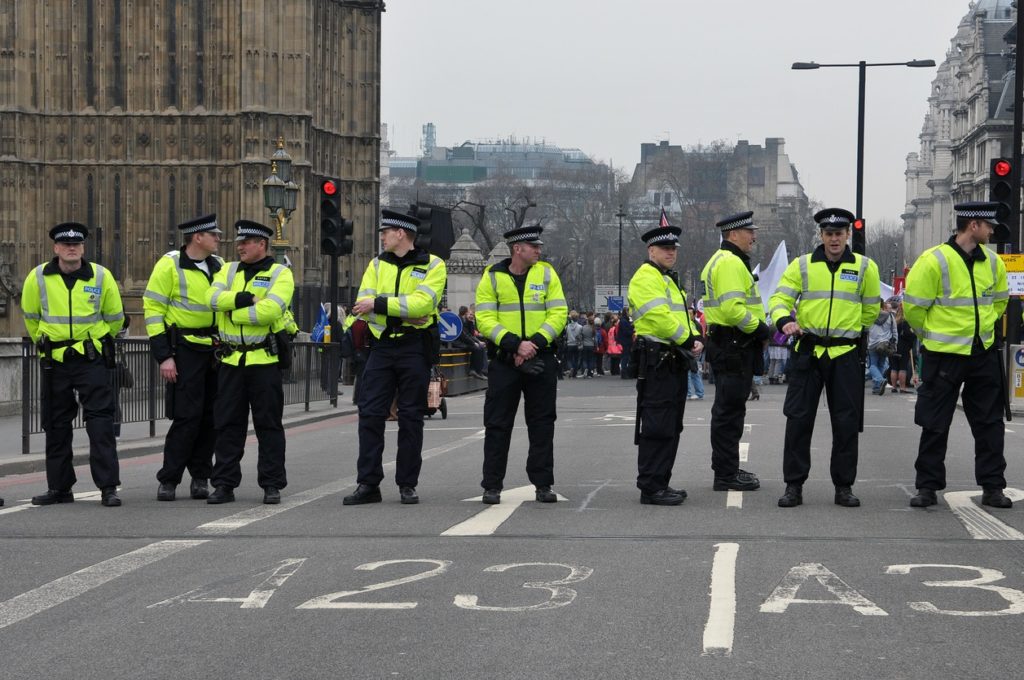I wasn’t out on the streets on Coronation Day with a Not My King placard. But, the arrests of more than 50 anti-royalist campaigners for peacefully exercising their right to do so, should make us all stand up to say Not My Democracy. Whatever our personal views on monarchy, the hard-line police response to sanitise the Coronation crowds, should trouble us all.
Our government is beginning to dismantle the freedoms that underpin our democratic society, fundamental freedoms that previous generations fought to protect. Legislation on public order was rushed through just days before the Coronation, and, with little time for scrutiny, has cast its net wide, catching, as we saw at the weekend, peaceful protesters who were disrupting nothing except the optics of a high-profile event. In a democracy, the onus is on the police to protect and enable people to exercise their right to peaceful protest, not to make judgement calls about what constitutes an inconvenience to society. A right isn’t a right if the police can decide when you have it.
How peaceful protest is policed is a key indicator of attitudes towards civil society – citizens, charities, community and campaign groups – a litmus test of a government’s willingness to engage with those who challenge it and those who question the status quo. Civil society is the canary in the democratic coalmine and we need to take notice of its early warning, distress signals.
Even for well-established humanitarian organisations like Oxfam it’s becoming increasingly difficult to speak out. In 2014, when we sought to draw attention to the increasing use of food banks and the poverty suffered by people in the UK, we drew scathing criticism from the likes of former Home Secretary, Priti Patel. At the time, the Charity Commission was critical that we hadn’t done enough to avoid a perception of political bias. It is great that the new Chair of the Charity Commission has publicly championed the role of campaigning by charities, but the prevailing narrative that charities should be there to do good – to help, but not to challenge – has grown ever stronger.
Of course, many of the drivers of this worrying trend come from beyond the UK: the anti-terror legislation that proliferated after 9/11, the rise in populism, and, most recently, some elements of the top-down, centralised response to the coronavirus pandemic that placed the greatest restrictions on our civil liberties seen in a generation. These measures helped to control COVID and undoubtedly were necessary to save countless lives, but questions remain as to whether they also emboldened politicians to encroach further, worsening a secondary infection that is threatening to overwhelm our weakened democracy.
People – campaigners, activists, charities – are extraordinarily powerful drivers of social change. If we want our governments to tackle climate change with the urgency and scale of ambition required, we need people to demand it. If we want an economic system that no longer privileges the eye-watering wealth of the elite at the expense of the majority, we need people to demand it. If we want a government that is held to account, and corruption kept in check, we need people to demand it.
A free citizenry is a load-bearing pillar of democracy; the erosion of its foundations threatens to bring down the temple.
A spokesperson for the Met described the Coronation as a ‘a once in a generation moment’. If only they’d been able to use it to showcase our nation’s commitment to a free society – one based on shared, fundamental rights – instead of as a justification for a heavy-handed, clumsy crackdown.
King Charles himself is known for his outspoken views on issues ranging from the environment to architecture. It would be ironic if his Coronation comes to be remembered as a day on which free speech was stifled. We’re sleepwalking towards a crisis of democracy; I only hope the sight of placards being loaded into police vans, wakes us all up.














